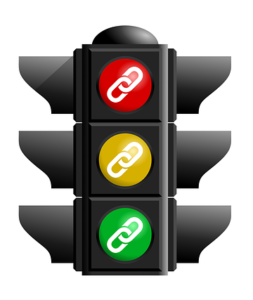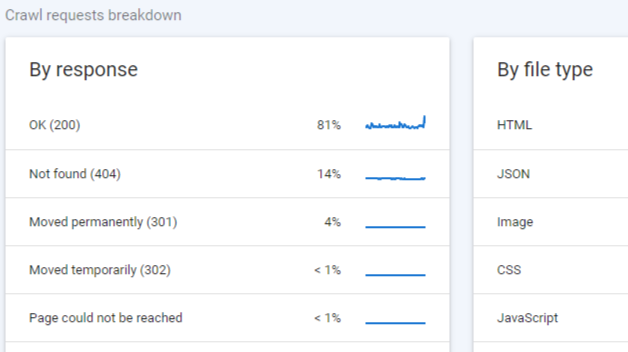Is your website going to need more incoming links in order to become successful? How do you even start to answer this question?
Backlinks are among the most important SEO factors to consider, but not all SEO audits will look at your backlinks.
Most SEO audits are primarily concerned with on-site SEO factors such as title tags, meta descriptions, and indexing-related issues. You can see what the Screaming Frog site audit looks at below and you won’t see “backlinks” on the name of any of those tabs.

The website auditor software from SEO Powersuite does include backlinks in the automated audits if you choose to include this. Other popular website auditing software like SEMrush will also include backlink analysis if desired.
What about seo4anyone? Do WE Look at Your Backlinks?
The answer is Yes! There is a long list of reasons why we include an overview of your backlinks in our SEO audit process.
Assessing website strength and current rankings
One of the primary reasons that we do an overview of your existing incoming link is to understand why your website is successful now (or perhaps why it is not).
- Is your website successful because it has lots of backlinks powering it up in the search engines?
- Or is it just extremely useful and showing Google lots of the right user behavior metric?
These users metrics are arguably just as important as backlinks as a ranking factor now in some cases. The answer to this question will affect our recommendations for some clients.
Understanding backlink strength helps to understand how obtainable some highly competitive targets are for a particular website.
Setting unobtainable keywords targets is an error. Setting targets that are easily obtainable but have little value can also be an error.
The art of SEO is:
- Knowing what is obtainable
- Where on the difficulty/volume matrix you should be aiming
How do we move the needle?
If we decide that the best keyword targets are the hardest ones, we may think to ourselves that earning links should be a top priority. But this isn’t always the case.
IF you have very few links and are already ranking in the top 30 for the target keywords, this does mean that a few links can be enough to move the needle. These might seem like reasonable targets, but only after we look at your existing links and your relative position in the SERPs.
On the other hand, if you have a strong backlink profile already and are not ranking in the top 50 for your big target terms… just a few backlinks probably won’t be the difference maker. We would take a different approach to moving forward in this scenario than we would in the previous paragraph.
How easily can your website rank for new keywords?
We want to understand how easy it will be to get new pages to rank for new keywords.
If your website is currently successful because of users metrics and relevance instead of having lots of backlinks, this indicates you might not rank quickly if you publish new pages that are targeting new terms. A slow rise might be a better expectation for you there.
If you have a strong backlink profile already, you might be able to rank for more competitive terms right out of the gate as a result so we might have some different types of keyword targets in mind for you.
Do toxic backlinks matter?
If you were doing SEO in 2005 you might have heard of “Google Bowling”. This later became known as negative SEO and the community fought over whether or not it was a real thing for many years. This refers to pointing a large amount of low quality links to a competitor website in order to mimic web spam, or an attempt by that website to cheat the SERPs. Google may penalize that website for spammy link building if this happens. While it is not impossible in some cases, for most websites it won’t happen and can’t happen.
 However, Google did release their link disavow tool many years ago so that website owners could submit lists of spammy links and signify to Google that they did not want any sort of credit from or association with those links. Link disavowing became a fad and you might be able to read my tone here that it’s not something we care much for. It is natural for a website to have all sorts of strange low quality links pointing to it after many years. Lots of these links are from automated websites. We do take note of your link quality but we do not go around just disavowing links because they are not “high quality”. This disavowing practice can be more hazardous to your rankings than the presence of the low quality links themselves.
However, Google did release their link disavow tool many years ago so that website owners could submit lists of spammy links and signify to Google that they did not want any sort of credit from or association with those links. Link disavowing became a fad and you might be able to read my tone here that it’s not something we care much for. It is natural for a website to have all sorts of strange low quality links pointing to it after many years. Lots of these links are from automated websites. We do take note of your link quality but we do not go around just disavowing links because they are not “high quality”. This disavowing practice can be more hazardous to your rankings than the presence of the low quality links themselves.
I don’t expect to ever deal with a website that is being negatively affected by a negative SEO attack for the rest of my career. I don’t advise others to worry about this and I don’t advise disavowing low quality links unless you detect that someone is actively trying to bowl you out of the search engines. In that case, it would be prudent to disavow some of those links if possible and this is another reason why we do check your backlinks.
In other words… We look for toxic links because it is a part of the job and it is a part of being diligent. However, 99% of the time the presence of low quality links is not something actionable and nothing more than an anecdote in our audit checklist.
Which pages are earning natural backlinks already?
One of the easiest ways to figure out how to earn more natural links is to look at what type of content and marketing has earned them in the past.
This is yet another reason why looking at backlinks should be a part of an in-depth SEO audit.





